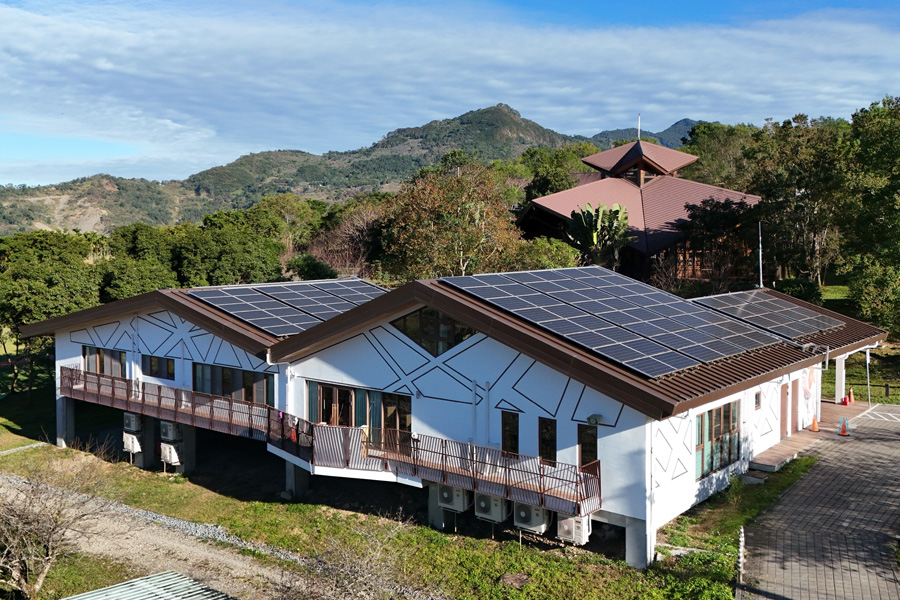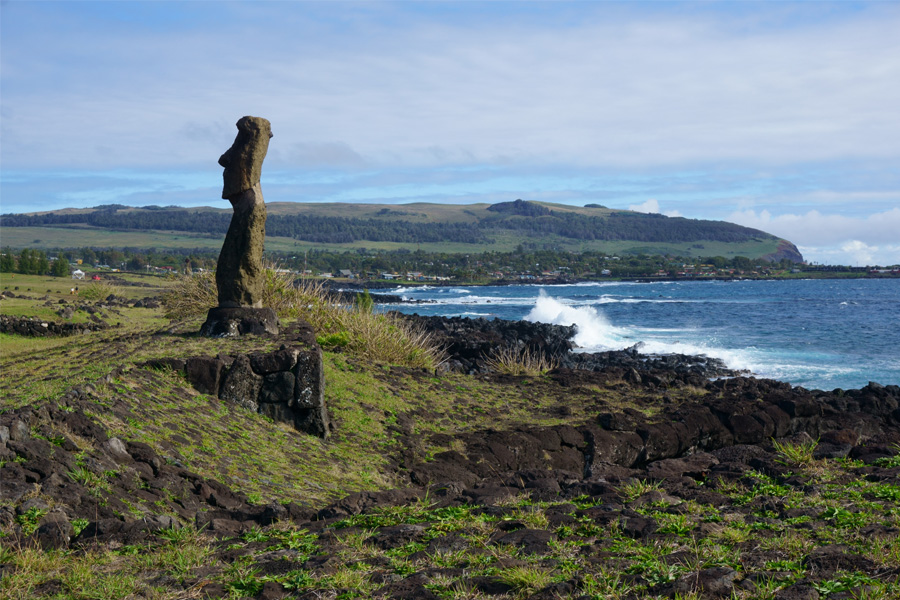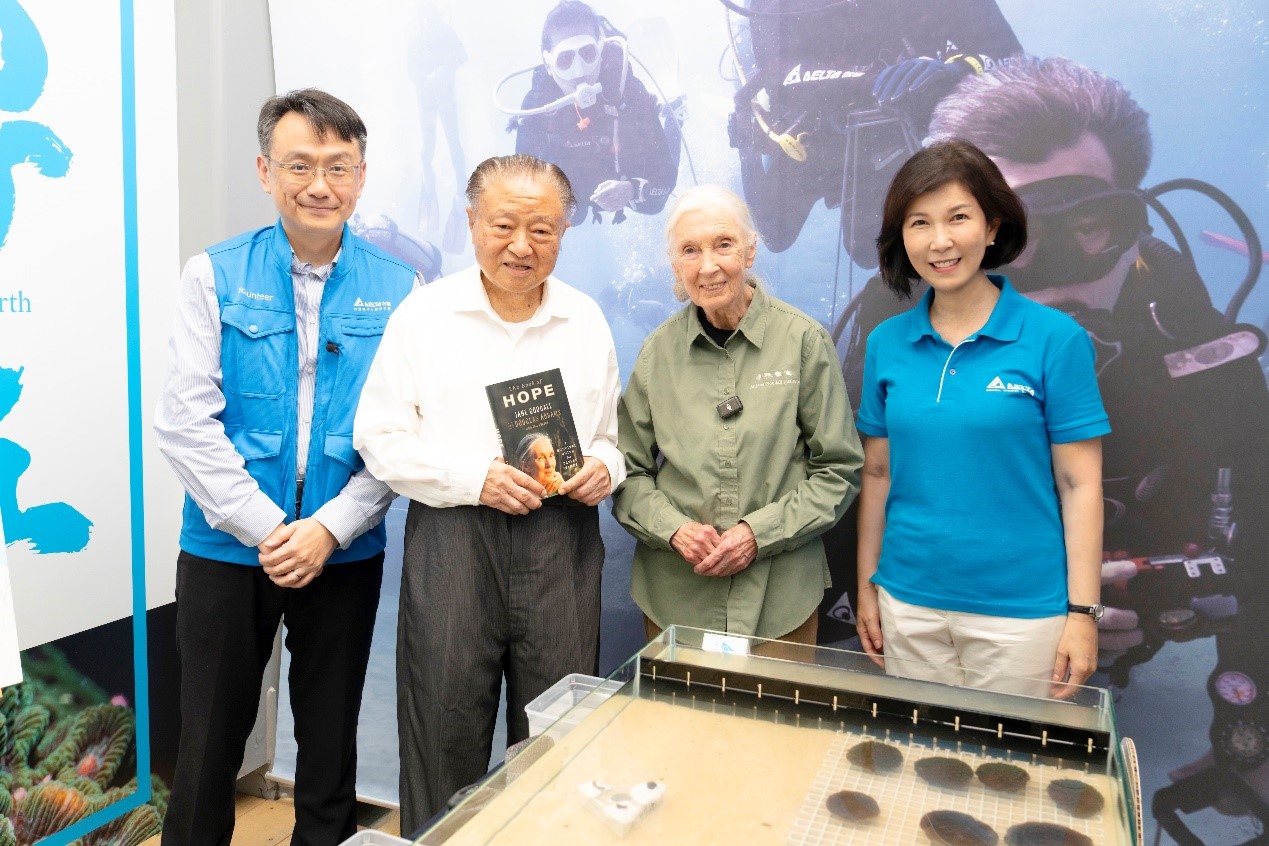Delta is leveraging technology to support coral restoration, learning from global best practices, and building an international exchange platform. To this end, the inaugural "Delta International Symposium on Coral Restoration" was held at the National Museum of Marine Biology and Aquarium in Pingtung. Twelve leading conservation organizations worldwide were invited to share their experiences, focusing on technical and practical exchanges, while related meetings were held between 160 domestic experts, scholars, government officials, and NPO members who gathered to discuss the latest research and practical outcomes in coral restoration.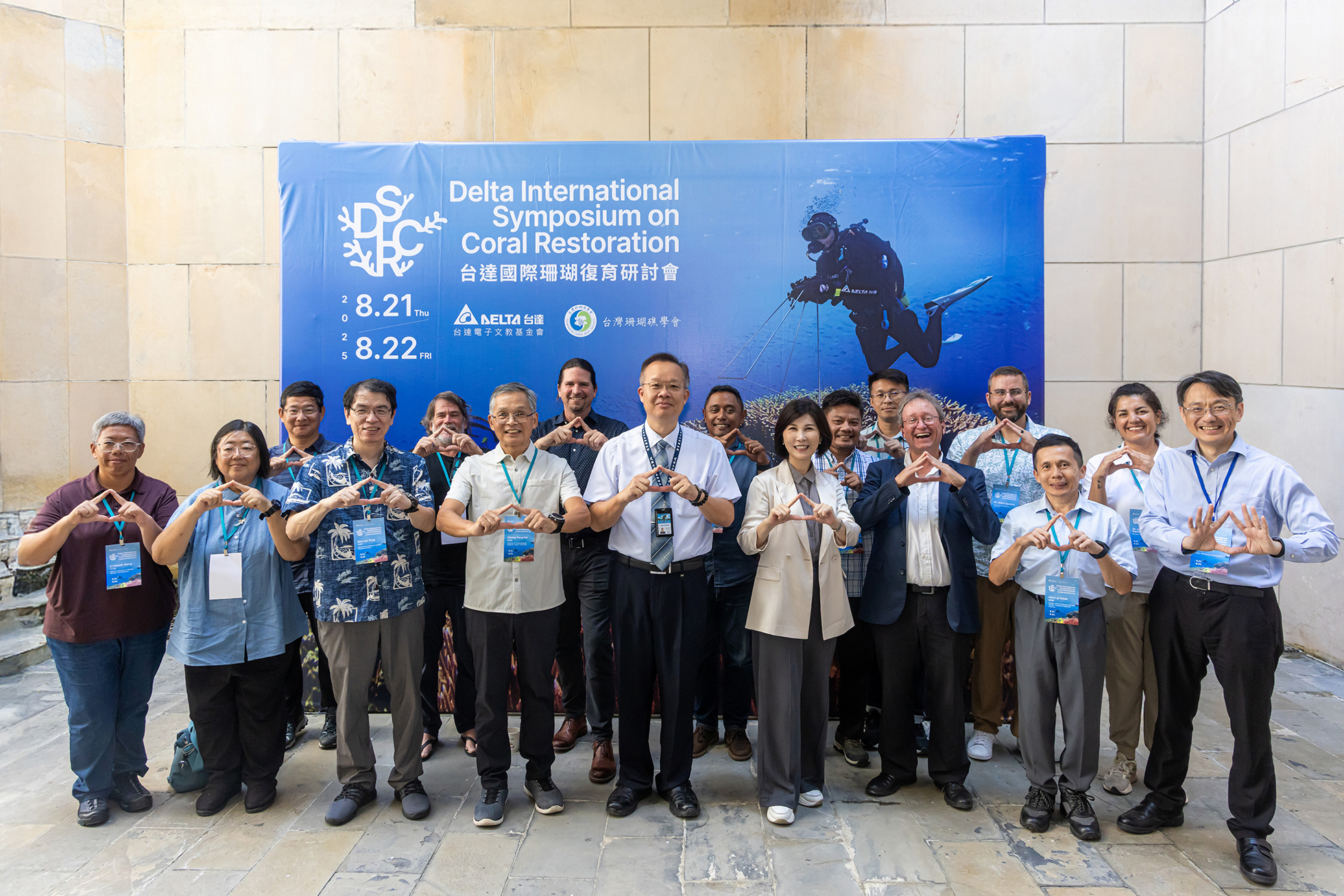 Twelve scholars from conservation organizations jointly participated in the seminar, including Dr. Thomas Brooks, Chief Scientist at IUCN (front row, third from the right).
Twelve scholars from conservation organizations jointly participated in the seminar, including Dr. Thomas Brooks, Chief Scientist at IUCN (front row, third from the right).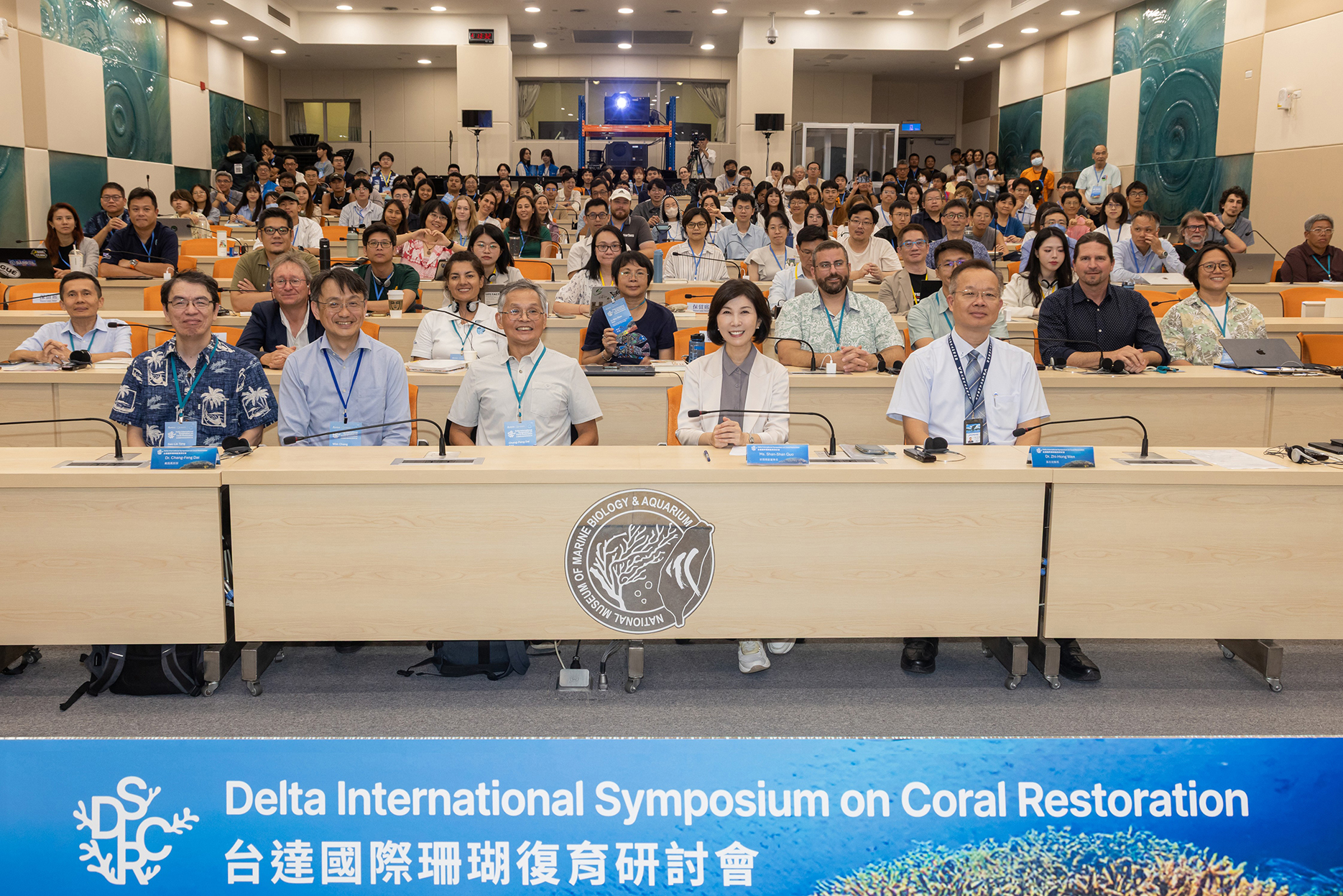 160 domestic and international scholars and experts in the marine field gather at DISCR.
160 domestic and international scholars and experts in the marine field gather at DISCR.
This year, Delta collaborated with the International Union for Conservation of Nature (IUCN) to study the application of the STAR methodology in coral reef ecosystems. On the eve of the seminar, a special "Kenting STAR Metrics Calibration Workshop" was held, featuring IUCN Chief Scientist Dr. Thomas Brooks and Senior Conservation Scientist Dr. Randall Jimenez Quiros as instructors. The workshop invited 15 domestic interdisciplinary marine biology experts and business unit leaders to participate in discussions, exploring the extinction threats faced by local species with the Kenting National Park marine area as a model site.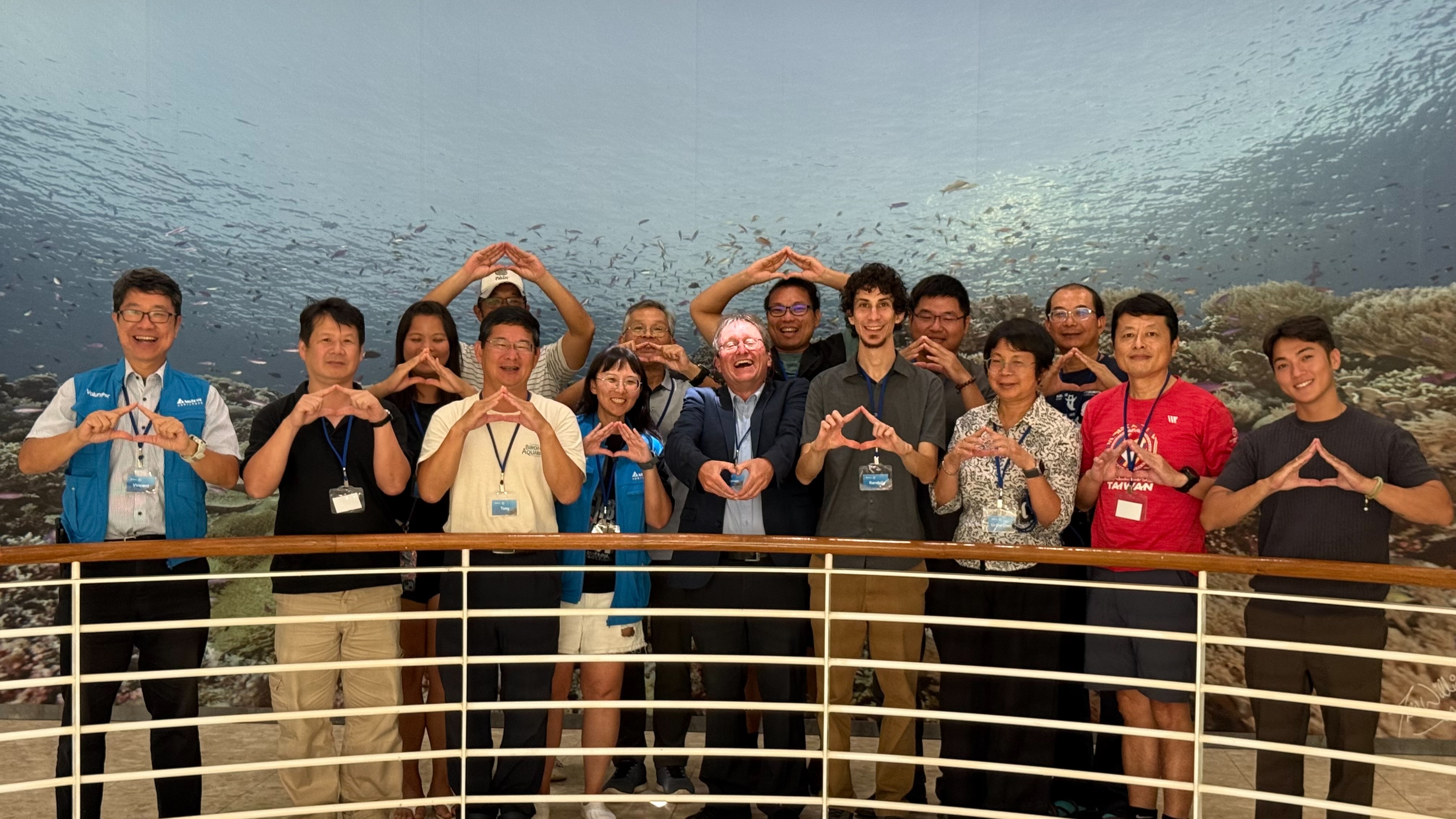 The Kenting STAR Metrics Calibration Workshop invited scientists from the International Union for Conservation of Nature (IUCN) to serve as instructors, bringing together local experts and marine affairs supervisory units from across the country for exchange and discussion.
The Kenting STAR Metrics Calibration Workshop invited scientists from the International Union for Conservation of Nature (IUCN) to serve as instructors, bringing together local experts and marine affairs supervisory units from across the country for exchange and discussion.
Through this workshop, participants fully mastered the application of the STAR methodology and are expected to complete building data by the end of September. This marks the first time IUCN has applied the STAR methodology to a marine ecological case, providing an important reference for future marine restoration policies.
The two-day seminar featured 14 scholars from eight countries sharing the latest advancements in coral research. Participating organizations included the Australian Institute of Marine Science (AIMS), James Cook University (JCU) in Australia, the Scripps Institution of Oceanography at the University of California San Diego (UCSD-SIO), Mote Marine Laboratory in the United States, the Tropical Marine Science Institute (TMSI) at the National University of Singapore, the Coral Triangle Center (CTC) in Indonesia, the Nature Conservation Society of Japan (NACS-J), and Japan's Sea Growth. Attending scholars also engaged with experts and practitioners from Taiwan's National Museum of Marine Biology and Aquarium, the National Museum of Marine Science and Technology, and private conservation groups to exchange firsthand experiences in coral restoration.
Delta Foundation Vice Chair Shan-Shan Guo stated, "To date, Delta has restored over 10,000 coral colonies. In the next five years, we'll take on the challenge of preserving more than half of the Pacific's coral species - approximately 300 species - as a proactive response to the increasingly severe challenges facing our oceans." The Foundation is also actively connecting global conservation partners and has organized its first international symposium aimed at promoting the application of technology, AI, and biodiversity quantification for enhanced collaboration, injecting new innovative momentum into coral conservation efforts.
On the first day of the seminar, the keynote speech was delivered by Dr. Stuart Sandin from the Scripps Institution of Oceanography at the University of California, San Diego, a world-leading coral reef research institution. Dr. Sandin introduced how Large-Area Imaging technology is used to collect images and build 3D digital twin models to effectively monitor changes in coral ecosystems. Dr. Jason Spadaro from the Mote Marine Laboratory in the United States, who attended the 2024 Biodiversity Conference alongside the Delta Foundation, highlighted that AI technology can assist coral surveys by assessing habitat coral coverage and suitability for transplantation. He also noted that through this seminar, many similarities were found between coral restoration efforts in Florida and Taiwan, and he plans to bring the ideas inspired by the conference back to his laboratory for further sharing.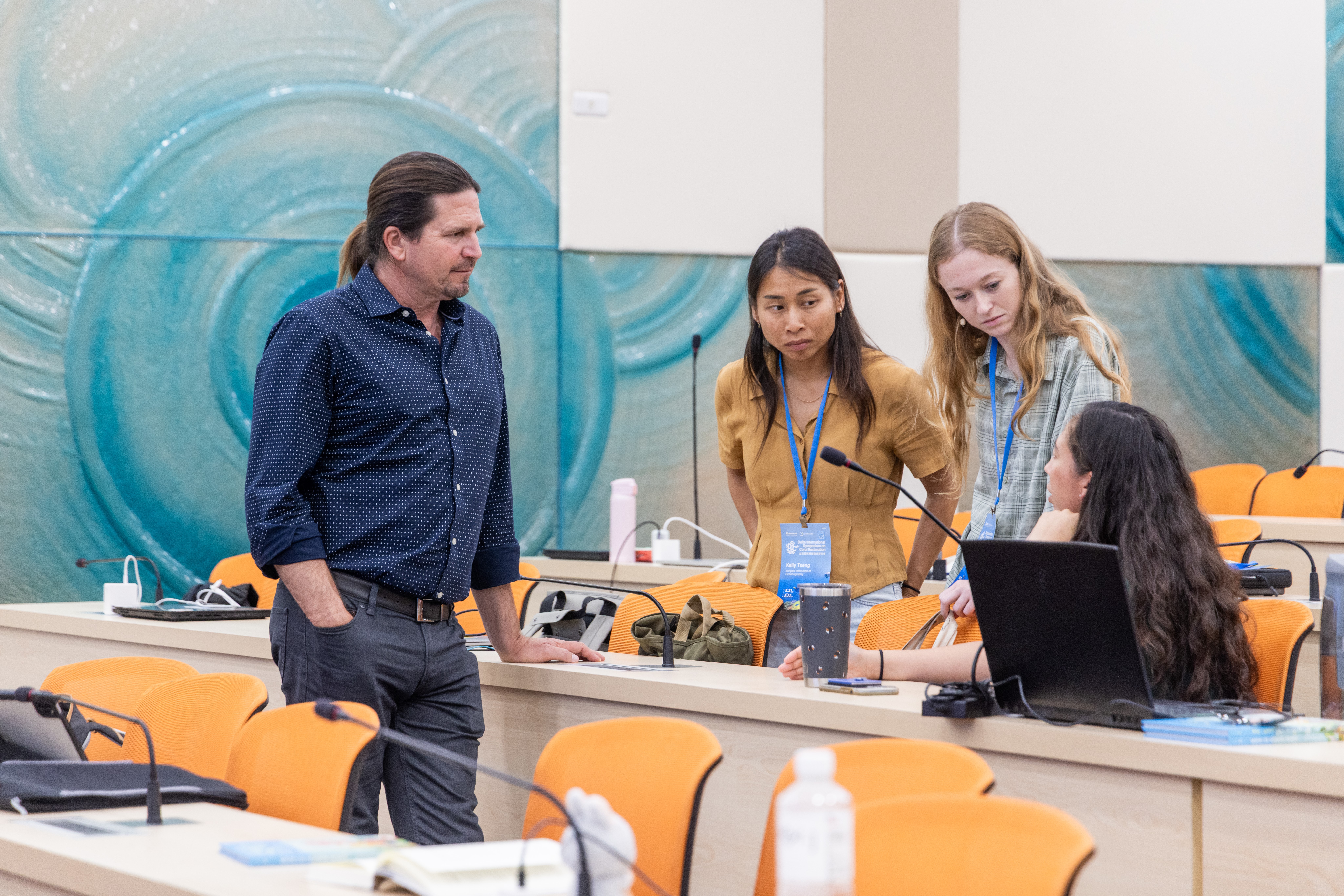 Midway through the conference, Dr. Stuart Sandin (far left), a marine ecologist from UCSD, shared and exchanged views with his team.
Midway through the conference, Dr. Stuart Sandin (far left), a marine ecologist from UCSD, shared and exchanged views with his team.
At the seminar, Delta's collaborative robot arm project, D-Bot, was showcased for the first time, demonstrating its application in heat-resistant coral cultivation. This presentation highlighted Delta's innovative integration of automation technology with ecological restoration. The event also featured the premiere of the 8K documentary "Coral Gardeners," which, through visuals and insights from global marine conservation experts, presented Delta's real-world efforts in coral restoration using advanced technology.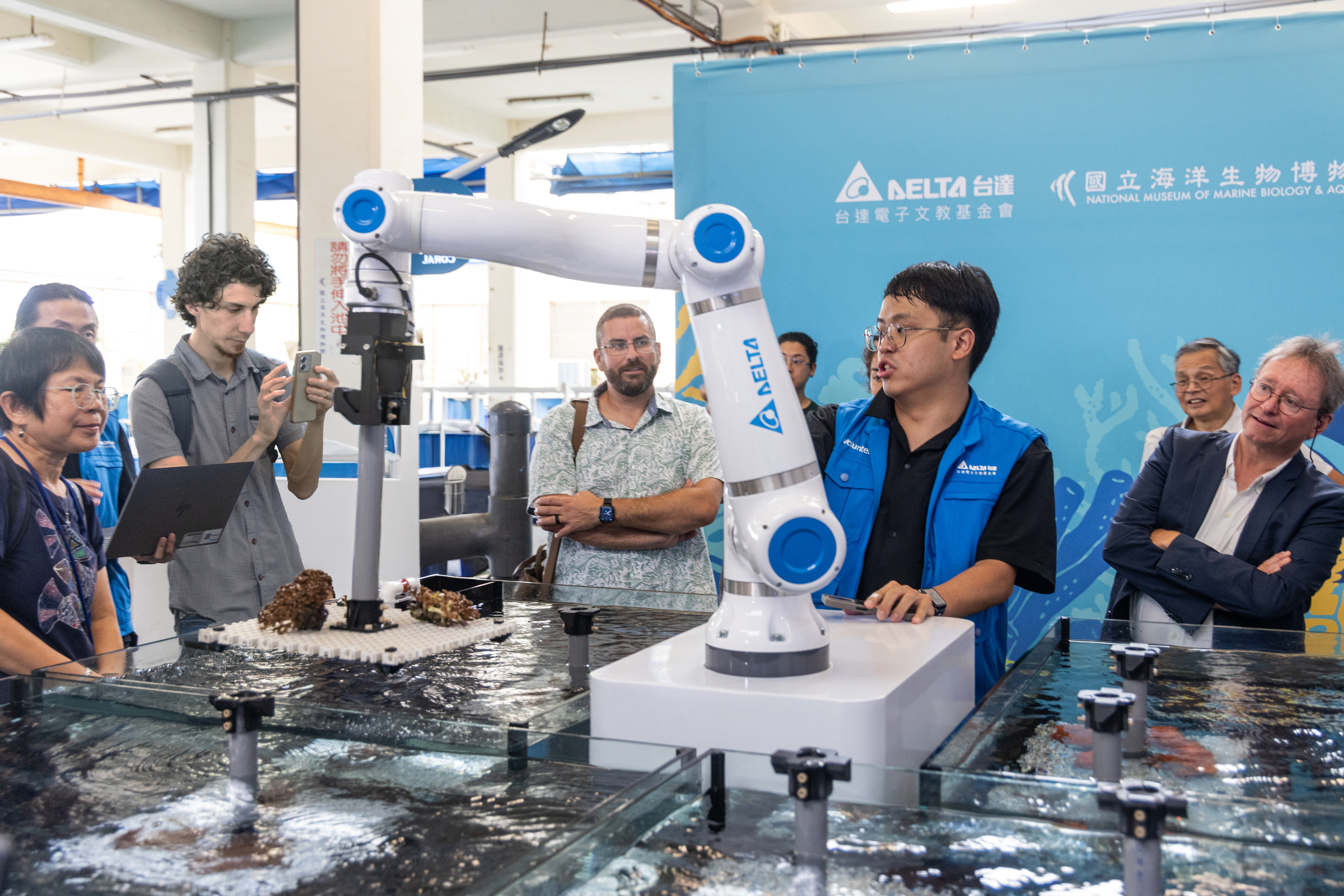 International scholars investigate Delta's use of technology to assist in cultivating heat-resistant corals, overcoming limitations in manpower.
International scholars investigate Delta's use of technology to assist in cultivating heat-resistant corals, overcoming limitations in manpower.
This seminar not only marked Delta's first collaboration connecting cutting-edge coral restoration research from both domestic and international experts but also highlighted Delta's ongoing commitment and concrete actions in promoting biodiversity. Moving forward, Delta plans to hold regular coral restoration seminars, using this international exchange platform to continue partnering with leading global scholars and transforming technology into a force for protecting marine ecosystems.













